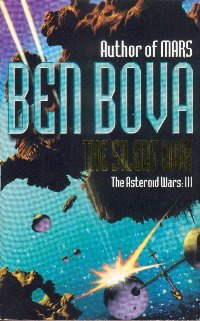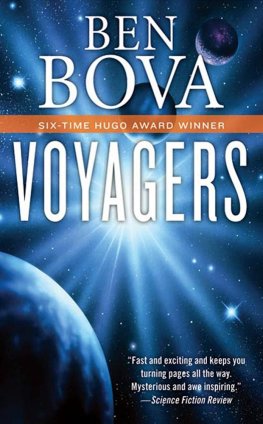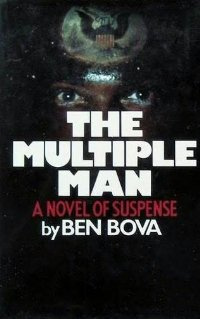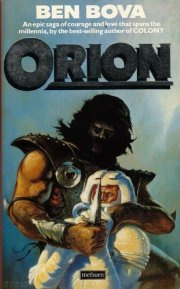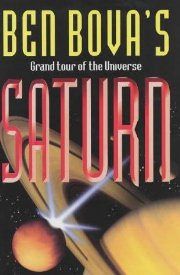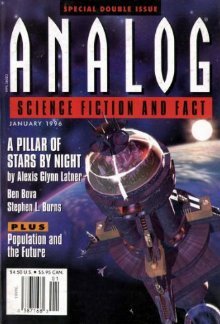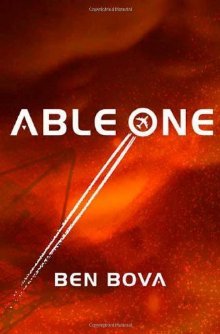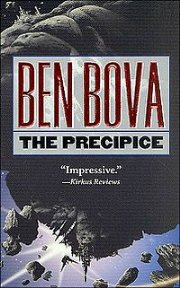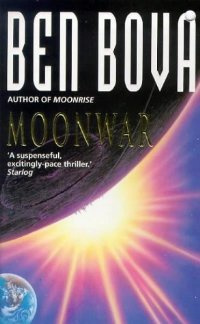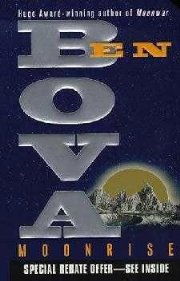Annotation
When corporations go to war, standard business practice goes out the window. Astro Corporation is led by indomitable Texan Pancho Lane, Humphries Space Systems by the rich and ruthless Martin Humphries, and their fight is over nothing less than resources of the Asteroid Belt itself. As fighting escalates, the lines between commerce and politics, boardroom and bedroom, blurand the keys to victory will include physics, nanotechnology, and cold, hard cash.
As they fight it out, the lives of thousands of innocents hang in the balance, including the rock rats, who make their living off the asteroids, and the inhabitants of Selene City on Earths moon. As if matters werent complicated enough, the shadowy Yamagata corporation sets its sights on taking advantage of other peoples quarrels, and space pirate Lars Fuchs decides its time to make good on his own personal vendetta
Its a breakneck finale that can end only in earths salvationor the annihilation of all that humankind has ever accomplished in space.
The Silent War
by Ben Bova
Everything is very simple in war, but the simplest thing is difficult War is the province of uncertainty; three-fourths of the things on which action in war is based lie hidden in the fog of a greater or lesser certainty.
Carl von Clausewitz, On War
To the memory of Stephen Jay Gould, scientist, writer, baseball fan, and an inspiration to all thinking people.
ASTEROID 67-046
I was a soldier, he said. Now I am a priest. You may call me Dorn.
Elverda Apacheta could not help staring at him. She had seen cyborgs before, but this person seemed more machine than man. She felt a chill ripple of contempt along her veins. How could a human being allow his body to be disfigured so?
He was not tall; Elverda herself stood several centimeters taller than he. His shoulders were quite broad, though; his torso thick and solid. The left side of his face was engraved metal, as was the entire top of his head: like a skullcap made of finest etched steel.
Dorns left hand was prosthetic. He made no attempt to disguise it. Beneath the rough fabric of his shabby tunic and threadbare trousers, how much more of him was metal and electrical machinery? Tattered though his clothing was, his calf-length boots were polished to a high gloss.
A priest? asked Martin Humphries. Of what church? What order? The half of Dorns lips that could move made a slight curl. A smile or a sneer, Elverda could not tell.
I will show you to your quarters, said Dorn. His voice was a low rumble, as if it came from the belly of a beast. It echoed faintly off the walls of rough-hewn rock.
Humphries looked briefly surprised. He was not accustomed to having his questions ignored. Elverda watched his face. Humphries was as handsome as regeneration therapies and cosmetic nanomachines could make a person appear: chiseled features, straight of spine, lean of limb, athletically flat midsection. Yet his cold gray eyes were hard, merciless. And there was a faint smell of corruption about him, Elverda thought. As if he were dead inside and already beginning to rot.
The tension between the two men seemed to drain the energy from Elverdas aged body. It has been a long journey, she said. I am very tired. I would welcome a hot shower and a long nap.
Before you see it? Humphries snapped.
It has taken us more than a week to get here. We can wait a few hours more. Inwardly she marveled at her own words. Once she would have been all fiery excitement. Have the years taught you patience? No, she realized. Only weariness.
Not me! Humphries said. Turning to Dorn, Take me to it now. Ive waited long enough. I want to see it now.
Dorns eyes, one as brown as Elverdas own, the other a red electronic glow, regarded Humphries for a lengthening moment.
Well? Humphries demanded.
I am afraid, sir, that the chamber is sealed for the next twelve hours. It will be imposs
Sealed? By whom? On whose authority?
The chamber is self-controlled. Whoever made the artifact installed the controls, as well.
No one told me about that, said Humphries.
Dorn replied, Your quarters are down this corridor.
He turned almost like a solid block of metal, shoulders and hips together, head unmoving on those wide shoulders, and started down the central corridor. Elverda fell in step alongside his metal half, still angered at his self-desecration. Yet despite herself, she thought of what a challenge it would be to sculpt him. If I were younger, she told herself. If I were not so close to death. Human and inhuman, all in one strangely fierce figure.
Humphries came up on Dorns other side, his face red with barely suppressed anger.
They walked down the corridor in silence, Humphriess weighted shoes clicking against the uneven rock floor. Dorns boots made hardly any noise at all. Half-machine he may be, Elverda thought, but once in motion he moves like a panther.
The asteroids inherent gravity was so slight that Humphries needed the weighted footgear to keep himself from stumbling ridiculously. Elverda, who had spent most of her long life in low-gravity environments, felt completely at home. The corridor they were walking through was actually a tunnel, shadowy and mysterious, or perhaps a natural chimney vented through the metallic body by escaping gases eons ago when the asteroid was still molten. Now it was cold, chill enough to make Elverda shudder. The rough ceiling was so low she wanted to stoop, even though the rational side of her mind knew it was not necessary.
Soon, though, the walls smoothed out and the ceiling grew higher. Humans had extended the tunnel, squaring it with laser precision. Doors lined both walls now and the ceiling glowed with glareless, shadowless light. Still she hugged herself against the chill that the two men did not seem to notice.
They stopped at a wide double door. Dorn tapped out the entrance code on the panel set into the wall, and the doors slid open.
Your quarters, sir, he said to Humphries. You may, of course, change the privacy code to suit yourself.
Humphries gave a curt nod and strode through the open doorway. Elverda got a glimpse of a spacious suite, carpeting on the floor and hologram windows on the walls.
Humphries turned in the doorway to face them. I expect you to call for me in twelve hours, he said to Dorn, his voice hard.
Eleven hours and fifty-seven minutes, Dorn replied.
Humphriess nostrils flared and he slid the double doors shut.
This way. Dorn gestured with his human hand. Im afraid your quarters are not as sumptuous as Mr. Humphriess.
Elverda said, I am his guest. He is paying all the bills.
You are a great artist. I have heard of you.
Thank you.
For the truth? That is not necessary.
I was a great artist, Elverda said to herself. Once. Long ago. Now I am an old woman waiting for death.
Aloud, she asked, Have you seen my work?
Dorns voice grew heavier. Only holograms. Once I set out to see The Rememberer for myself, butother matters intervened.
You were a soldier then?
Yes. I have only been a priest since coming to this place. Elverda wanted to ask him more, but Dorn stopped before a blank door and opened it for her. For an instant she thought he was going to reach for her with his prosthetic hand. She shrank away from him.

